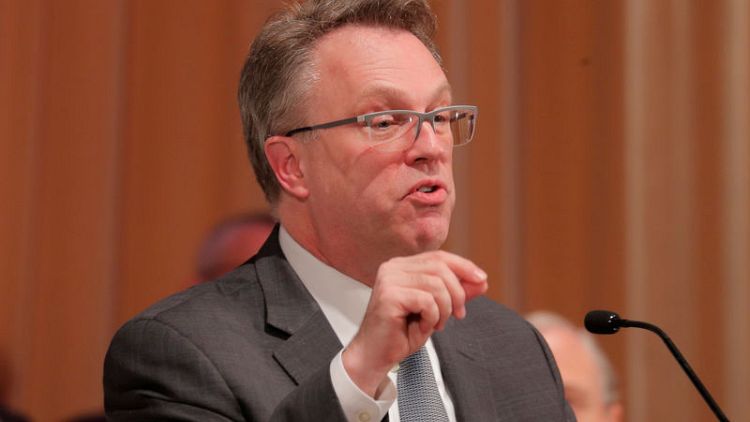By Jonnelle Marte
NEW YORK (Reuters) - New York Federal Reserve President John Williams on Monday defended the bank's handling of volatility in money markets last week, saying officials anticipated the liquidity crunch and were successful in easing the markets.
Williams also stressed the need for urgency for financial firms to move away from using Libor, a benchmark that is expiring in a few years. The bank president spoke in New York at a treasury markets conference attended by regulators, financial firms and other market experts.
"We were prepared for such an event, acted quickly and appropriately, and our actions were successful," Williams said in prepared remarks.
Williams's remarks followed a week in which there were unusual bouts of volatility in a typically sleepy part of financial markets.
The New York Fed had to intervene and inject billions of dollars of cash into the financial system to address a shortage in the cash available to help banks finance their short-term funding needs. The repo rate, a key measure of liquidity in the global banking system, shot up to 10% on Tuesday, or more than four times the federal funds rate.
Repo rates returned to more normal levels after the Fed made multiple rounds of repo operations. On Friday, the bank said it would keep pouring tens of billions of dollars a day into the U.S. banking system through early October.
Williams also urged financial firms to finalise their plans for replacing Libor, a benchmark that is linked to $200 trillion (160.9 trillion pounds) in financial contracts. The rate, which was tainted after it was revealed that financial firms rigged the rate to steal billions of dollars in profits, is set to expire after 2021 but banks have been slow to move to a replacement benchmark.
"We are now 831 days away from that world, and while some institutions are making good progress, others are sticking their metaphorical heads in the sand, hoping the issue will go away," Williams said.
(Reporting by Jonnelle Marte; Editing by Chizu Nomiyama)



